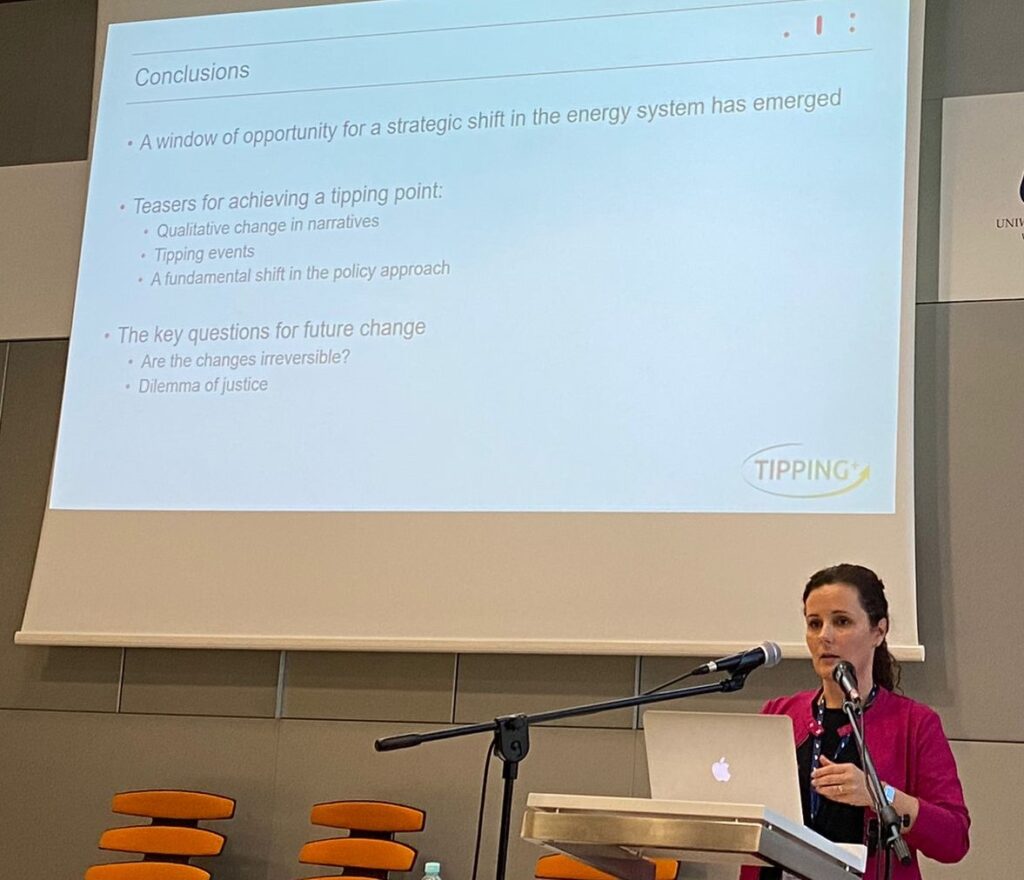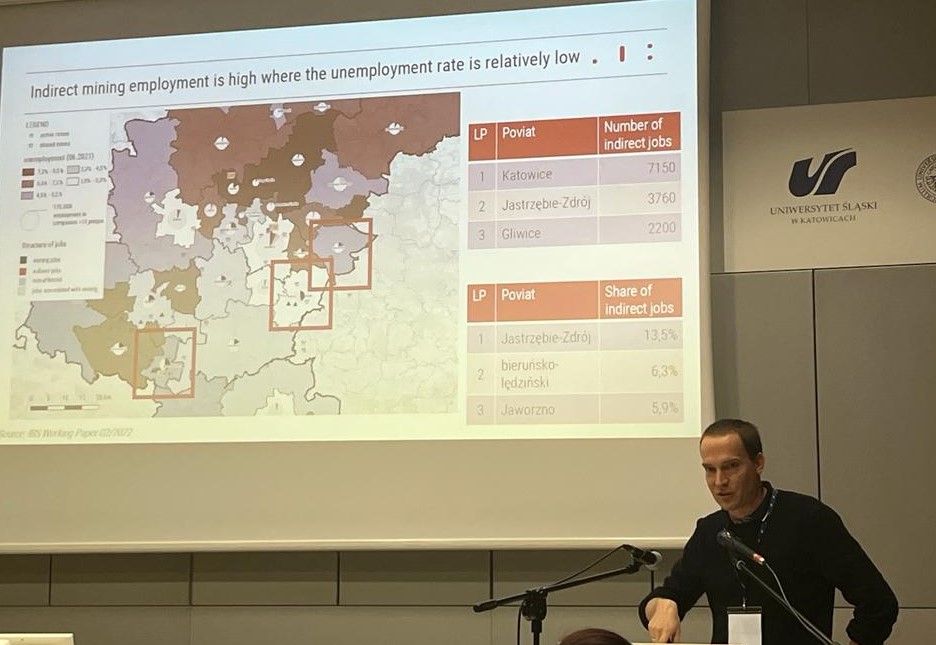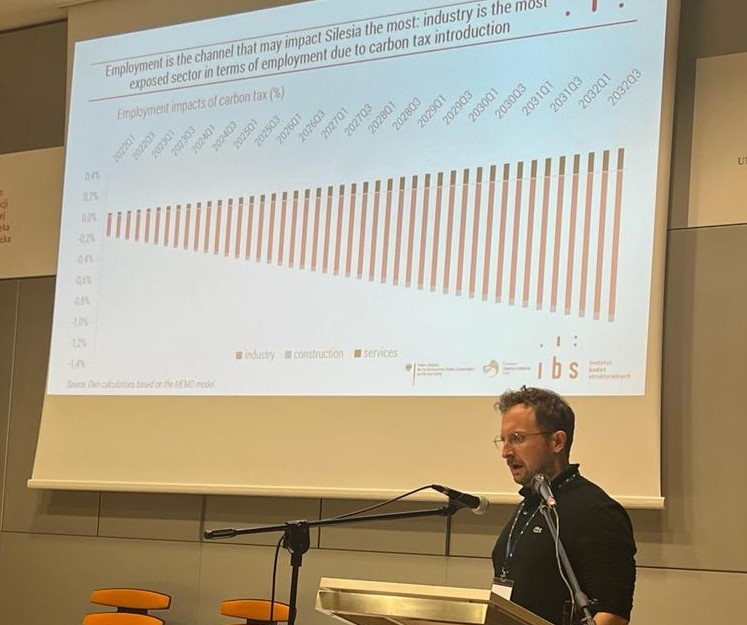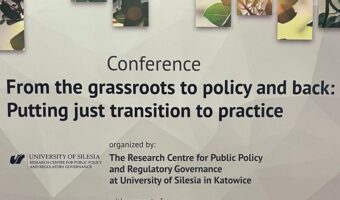The conference was organised and led by dr Łukasz Trembaczowski from the Institute of Sociology at the University of Silesia in Katowice. The conference gathered several dozen people from all over the world associated with the Just Transition Research Collaborative and research consortiums investigating coal regions, i.e. TIPPING+ and CINTRAN. The presentations focused on advancing “justice” frameworks, structural changes in regional labour markets and post-extraction future economic development. Participants also consulted their initial research ideas and first fieldwork results.



During a very intensive conference day, IBS researchers also presented the results of the last research findings – from dawn until dusk:
Joanna Mazurkiewicz compared the coal phase-out in Upper Silesia and the Ruhr Valley based on TIPPING+ Polish and German case studies. According to the results, Upper Silesia achieved a peak in coal extraction and employment 30 years later than Ruhr Valley (1957). Still, the coal exit pathway in Poland reproduces the German one. The temperature of the parliamentary discourse around the coal phase-out is also similar in both countries. However, the transition narratives in Germany and Poland differ regarding the attitude toward energy sources diversification and the intensity of the debate on environmental issues.
Jakub Sokołowski presented the simulation results of carbon tax implementation in five Central and Eastern Europe countries. The modelling results are part of the more comprehensive project devoted to carbon pricing, financed by EUKI. Jakub emphasised that climate policies can be progressive and bring social benefits if we consider just revenue recycling schemes for the less affluent income groups.
Using the administrative registry data, Jan Frankowski presented the scale, structure and location of mining-dependent jobs in Upper Silesia. According to these findings, mining subcontractors hire 51 thousand people, with 21 thousand particularly dependent on contracts with mines – especially in industry and construction. Mining-related workers are not protected as much as miners in terms of working conditions and become more exposed to layoffs.
After the conference, all attendees participated in a workshop to discuss joint cross-project and cross-discipline collaboration ideas.

